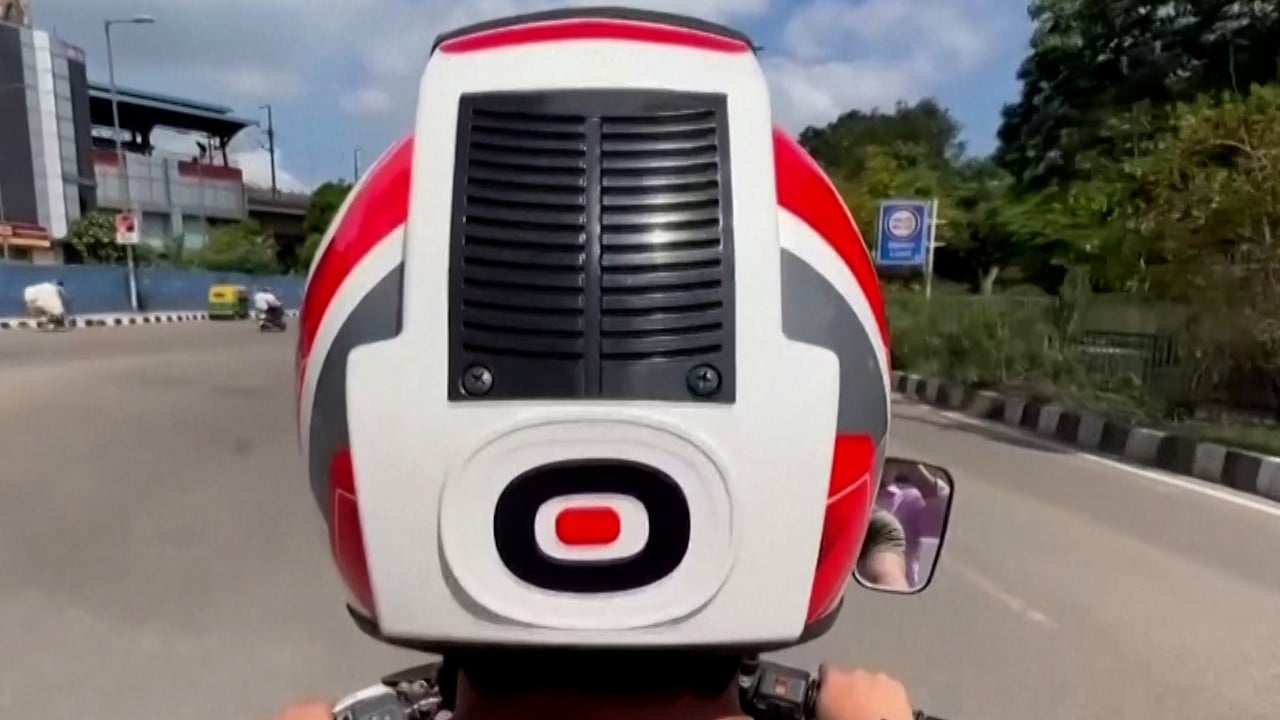
01:59
Anti-pollution motorcycle helmet gives bikers a ‘breath of fresh air’ in India

DBS, Southeast Asia’s largest bank, is pursuing an “ambitious” plan to reduce financed emissions from steel production as it races to achieve net-zero emissions by 2050.
The pledge is likely to prove challenging, as the lender is heavily exposed to the industry-dominant markets of China and India.
“We are taking a leap of faith,” said Yulanda Chung, head of sustainability, institutional banking group, DBS, at a news conference announcing the measures on Tuesday. “Many of our steel mill customers are in China and India [which are] higher emitting regions. As a result, we are really trying our best to have an ambitious target.”
The Singapore-based bank hopes to reduce its financed emissions from steel – those caused by steelmakers financed by the bank – by around 27 per cent of 2020 levels by 2030, from 1.95kgCO2 to 1.42kgCO2 per kilogram of manufactured steel. It then hopes to drastically scale down to just 0.14kgCO2 by 2050.
KgCO2 is a unit that quantifies the amount of carbon dioxide that would have the same global warming potential as a given amount of greenhouse gas.
Steel manufacturing is one of the world’s leading causes of harmful emissions, accounting for between 7 and 9 per cent of all human-caused greenhouse gases globally, according to the World Steel Association.
China alone makes more than half the world’s steel. It produced 1,038.2 million tonnes of crude steel in 2021, according to the association. India, ranked second, produces around 5 per cent of the world’s supply at just 118.2 million tonnes.
DBS’ announcement was part of a larger report detailing industry-specific pathways the bank will pursue to achieve its 2050 net-zero financed emissions goal. The report covered nine sectors in total, including property, automation, and oil and gas.
“We do believe that this is one of the most expansive sets of commitments that exist in the financial sector,” said Piyush Gupta, CEO of DBS, at the news conference.
Other goals in the report included achieving net-zero financed emissions in the power sector by 2040 and a 28 per cent reduction in financed emissions in energy by 2030. This is on top of previous commitments to eliminate the bank’s exposure to thermal coal by 2039.
Recently, banks around the world have begun releasing climate plans to achieve net-zero in their financed emissions. Although many banks have set preliminary targets of 2050, few have provided specific details about how they plan to measure their progress.
In a March study by Asia Research and Engagement (ARE), a Singapore-based consultancy firm, Asian banks in particular were found to be “falling short” when it came to carbon emissions targets.
The study found none of the 32 banks surveyed had “adequate implementation plans” for achieving the goals set out in the 2015 Paris Climate Agreement.
Asian economies are considered some of the most at risk if no action is taken on climate change.
“We welcome the new decarbonisation targets from DBS and applaud the clear road maps for multiple critical sectors,” said Ben McCarron, founder and managing director ARE. “This shows that Asian banks can position themselves as global leaders on sustainability.”